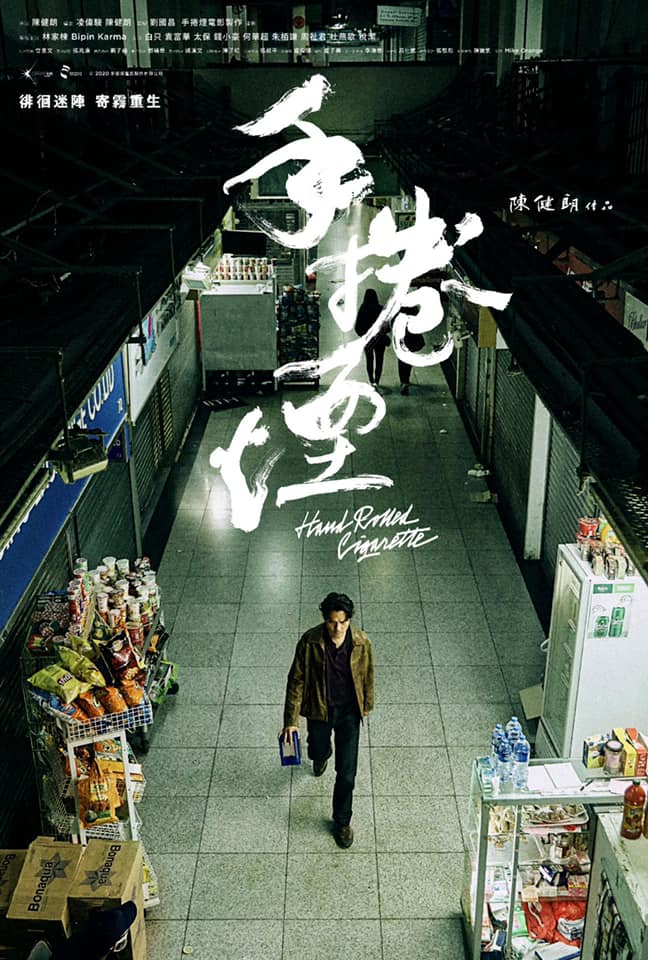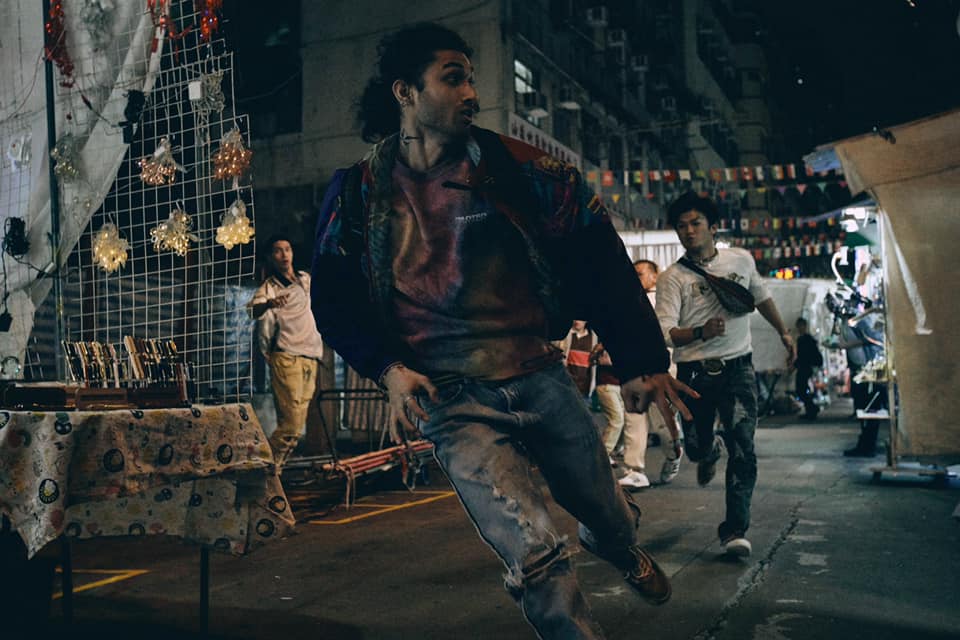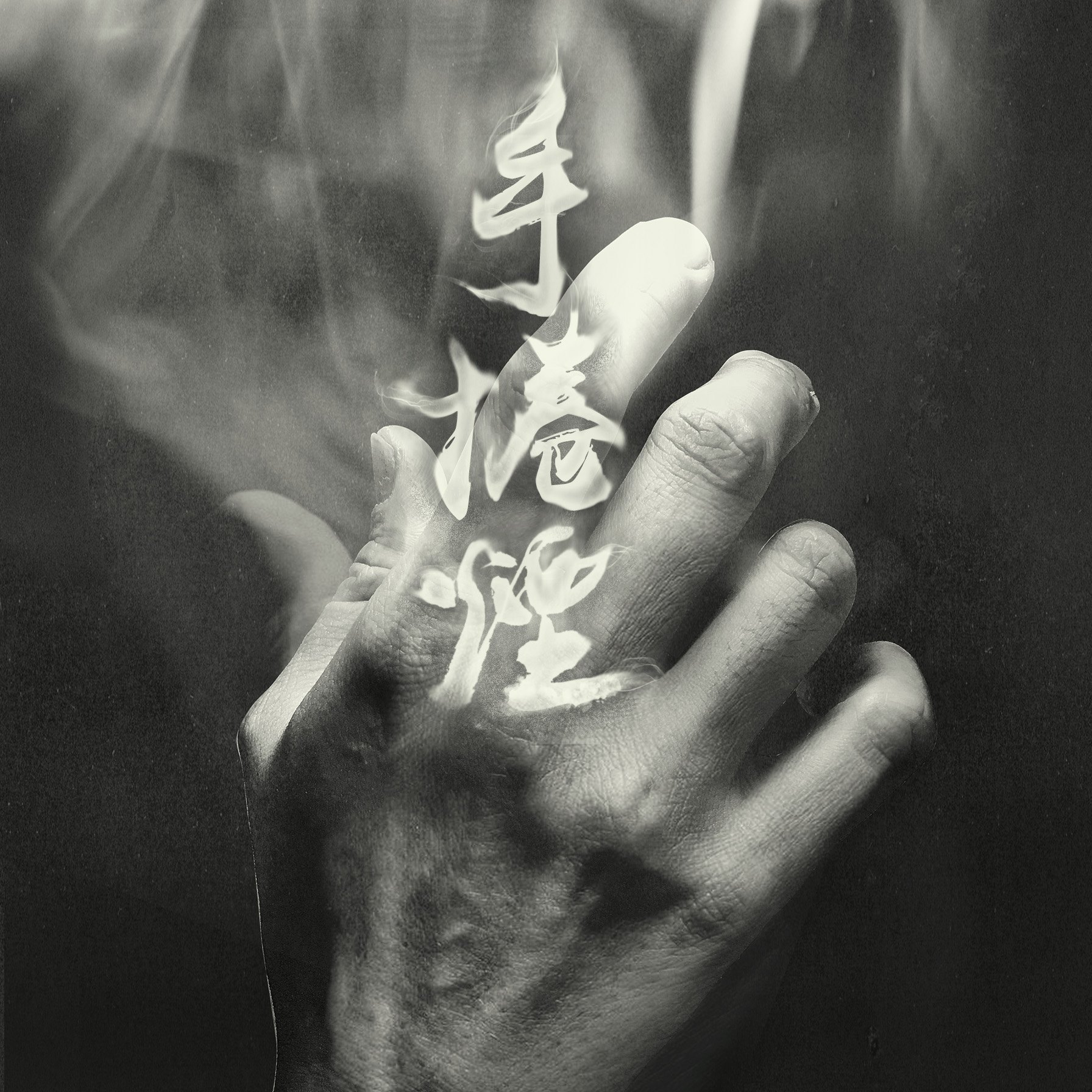by Brian Hioe
語言:
English
Photo Credit: 手捲煙 Hand Rolled Cigarette/Facebook
No Man is an Island interviewed Kelvin Chan Kin-long (陳健朗), the director of Hand Rolled Cigarette (手捲煙). This interview was done in collaboration with Cinema Escapist. Keep an eye out for more!
Brian Hioe: Could you first introduce yourself for readers who might not know you?
Kelvin Chan Kin-long: I’m Chan Kin-long. I’m a Hong Kong director and actor. This is my first movie that I directed and filmed.
BH: How did the inspiration for Hand Rolled Cigarette come about?
KCK: In the beginning, I wanted to tell a story about Hong Kong. But what is Hong Kong? We started looking at some specific identity issues that had to do with Hong Kong. So, for example, British troops that are Hongkongers are specific to Hong Kong. Only in Hong Kong were there ethnic Chinese that were British troops.

Photo credit: 手捲煙 Hand Rolled Cigarette/Facebook
So that became the background of our main character. These soldiers faced difficulties before the 1997 Handover. In Britain, they were soldiers. But after the Handover, they didn’t have a British passport. They weren’t British citizens. They felt they were British, but when they weren’t treated as British, it proved difficult. I hoped to show something about the people through this character.
The other character is a young South Asian character. People like him were born in Hong Kong, can speak Cantonese–they can curse in Cantonese, maybe better than me. But they aren’t treated as Hongkongers.
Hong Kong is a place of diversity, so this is reflected in the movie.
The historical background was after the financial crisis in 1997. That was a very important event for Hong Kong. For me, this is also the most important event in Hong Kong’s recent history. The movie takes place in 1997 and 2019.
British soldiers after the Handover found themselves without identity. They weren’t soldiers, they weren’t anybody, they were just regular people. Many people don’t know how to face the handover as an event. The soldier in the film reflects my father and mother’s generation. People who are in their 50s and 60s.
The younger character reflects those of us born in the 1980s and 1990s. There’s a metaphor there.
BH: Were there any difficulties that you had to overcome in filming this movie? Because the production was affected by COVID.
KCK: There were many challenges. The biggest was COVID-19, so we had to take care of it carefully. Before we started shooting, everyone would have to wear masks. Actors would take off their masks when they walked in. Once we’re done shooting, after I shout, “Cut!”, then they’ll put their masks back on.
We also had a staff member who would carry out regular disinfections to spray everyone. We had to be certain that there wouldn’t be any infections on set.
We were the only movie that was shooting in Hong Kong at that point in time. Now it’s improved a lot, many movies are shooting again now.
BH: What have reactions been for audience members so far?
KCK: Some Hong Kong viewers have commented that they could see some of the flavor of older films. Such as that it’s about gangsters. Or elements of the lighting or camera angles. It has some older elements in there, but I believe that the circumstances depicted in the film are what faces us, of the younger generation. This is a combination of old and new.
I hope that international viewers can see something of Hong Kong in the film.
BH: Do you have any views on contemporary Hong Kong views? Such as regarding the market or other influences?
KCK: Sometimes we have to change some things to accommodate the market. But I believe that the process of creation is the most important. I don’t know what reactions there will be or how it will do in the market for future works, but the most important thing is for a work to say what I want it to say. This is what I believe is most important for a creator. That I know what I want to express.
I believe that’s part of the strength of older Hong Kong films. That they put their energy into completing a work. If you do that, the audience can feel your passion. So through this movie, I hope that I can let viewers see the passion of Hong Kong.

Photo credit: 手捲煙 Hand Rolled Cigarette/Facebook
BH: Do you have future plans for movies?
KCK: I’m thinking about a story that has to do with gangsters. I hope to go to Taiwan and Japan to film in the future for this. A story about Asian gangsters.
BH: There’s a Taiwanese gangster in your film.
KCK: That’s right. He delivers the key line of dialogue in the film. Using a Taiwanese character seemed most appropriate there.
BH: Is there anything you’d like to say in conclusion to readers?
KCK: Why’s the movie titled Hand Rolled Cigarette? I don’t know if you smoke, but if you roll cigarettes, you have to put some tobacco inside, roll it, and lick it. It has your saliva on it. If I give you a cigarette that I rolled, you’re smoking my saliva. If you’re smoking this, this represents that our relation is at a level of comfortableness. It represents feelings between people.



